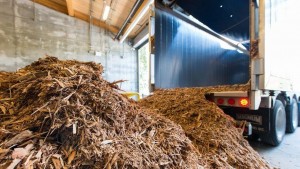 Australian biofuel businesses hope the UN Paris Climate Conference commitments will translate into clear policy and incentives. Source: ABC Rural
Australian biofuel businesses hope the UN Paris Climate Conference commitments will translate into clear policy and incentives. Source: ABC Rural
The sector says it could double its output of electricity and transport fuels from agriculture, forestry, and biological waste streams by 2020 if the Prime Minister was serious about harnessing technological innovation to reduce Australian emissions.
Bioenergy Australia CEO Steven Shuck said a suite of advanced biofuels were in development and significant investments in bioenergy were being planned for Australia.
“There’s just a whole range of new technologies for heat, power and transportation fuel,” Dr Shuck said.
“That spans right into the whole agricultural sector as well. “There’s a lot of material which is often burnt for disposal.
“There are also alternatives of using even biogas.”
Dr Shuck says investments in bioenergy and alternative fuels were likely as governments and industry move to lower greenhouse gas emissions.
The Clean Energy Finance Corporation said Australia’s bioenergy sector had potential to double in the next five years.
Last week it announced a $100 million dollar bioenergy fund to accelerate investment in the sector.
Brendan George from Bioenergy Australia said it was changing how people view energy and electricity use. He said more farm, forestry and food industry waste could be utilised in energy systems.
“It’s a resource which is there and something I think we can get better use of,” Mr George said.
“Our biofuel industry is very small compared to the existing fuel industry, so there is great potential there.
“We believe in a market-based economy, so we look at how can we efficiently do this.
“But we need to work out the better ways to do things.
“And I suppose in the larger context it’s about how do we best manage our natural resources.”
Simon Dawkins, from Curtain University’s Sustainable Policy Institute, said bioenergy projects needed to demonstrate a standard of sustainability farm superior to fossil fuel alternatives.
Mr Dawkins said stakeholders had sustainability concerns around carbon, biodiversity and deforestation.
He said the Abbott Government’s cuts to the Renewable Electricity Target (RET) had effectively undermined investment in the bioenergy sector.
Mr Dawkins said forest energy systems, including Western Australia’s Oil Mallee Biomass Project, he managed needed mature climate change policy and carbon sequestration programs to succeed.
“I’m talking about politics,” he said. “We have to be absolutely certain of our ground so that we counter some of those other arguments that slow down or even disrupt or even reduce investment.
“Any investment that flows into this area is going to be on the back of really confident sustainability assessment.”





